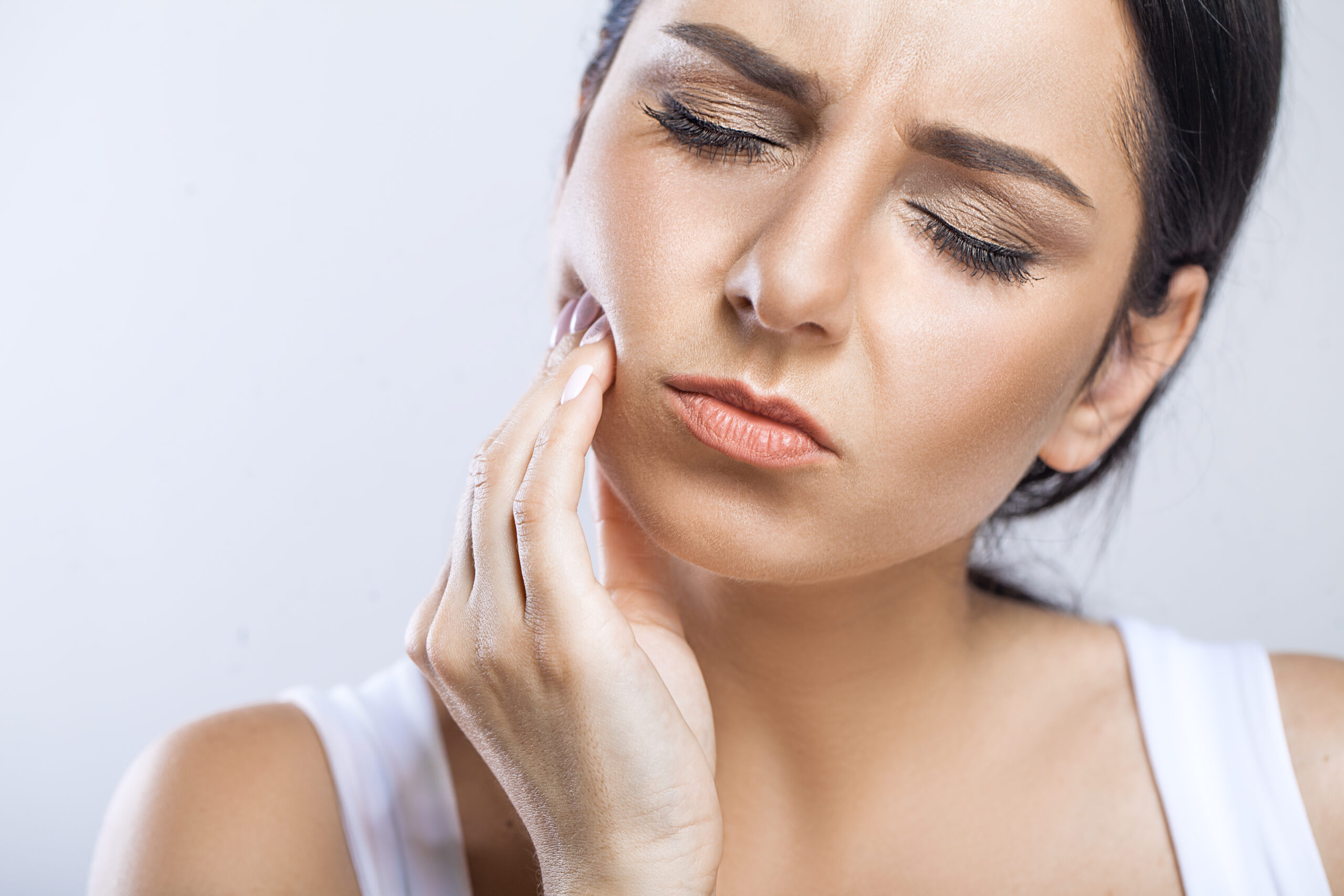- Why you are experiencing tooth sensitivity in cold weather
- Protect your winter oral health with these five sensitive teeth care tips
- Take care of your oral winter health before the cold weather arrives
Now that the weather is cooling down here in Toronto, you might start feeling that your teeth hurt when you step outside. No, it is not your imagination – lower temperatures can actually cause tooth pain!
This does not mean you have a long, dark winter of toothaches ahead, because we are here to help you understand why this is happening and provide some winter oral health tips that will help you keep smiling straight through to the return of spring.
Why you are experiencing tooth sensitivity in cold weather
The truth about why your teeth might hurt when the temperature drops is simple: your teeth are getting older.
As we age, we sometimes expose the soft tissue beneath the enamel, known as dentin. This tissue is more sensitive to the cold than the enamel, causing pain as the cold air comes into contact with teeth.
Another factor that contributes to tooth pain in colder weather is eating sugary treats after Halloween and throughout the holiday season. The sugar from these festive snacks can stick to your teeth, increasing your risk of cavities and enamel erosion, leading to increased tooth sensitivity in cold weather.
The run-up to the holiday season can also cause stress, which can lead to teeth grinding (bruxism) as a response. Excessive tooth grinding can wear down and weaken your tooth enamel, potentially causing you to cringe in pain when breathing in cold air.
You might think the answer to preventing tooth pain from cold air is to stay inside until March, but that could be detrimental to your overall mental health and well-being. Instead, let us recommend some practical cold-weather dental tips that can help you enjoy the fall and winter outdoors with minimal tooth pain.
Protect your winter oral health with these five sensitive teeth care tips
1. Keep your mouth warm
While outside in falling temperatures, breathing through your nose is a great way to stop cold air from entering your mouth to trigger tooth pain. You can also keep your mouth warm by wearing a scarf over it, especially if you are talking.
Additionally, inhaling steam from a hot cup of tea or cocoa when outdoors can help maintain the temperature in your mouth, but avoid drinking very hot beverages outside as the extreme temperature may worsen the pain.
2. Watch what you eat and drink
Stick to foods and beverages that promote tooth health instead of sugary or acidic snacks and sodas. Also, avoid chewing ice or abrasive food to prevent damaging the enamel protecting your teeth.
If you do indulge in Halloween snacks or festive treats over the holidays, be sure to rinse your mouth with water afterward to help get rid of food particles, and stick to a routine of brushing your teeth with fluoride toothpaste twice per day and flossing at least once per day. This oral health program will help reduce the risk of cavities and gingivitis and keep your teeth and gums strong and healthy.
3. Reduce your level of stress
You might not even know you are doing it, but tooth grinding as a stress response can cause serious oral health issues as well as neck and jaw pain. If you are grinding your teeth because you are feeling overwhelmed from the holidays or for any other reason, try stress-busting activities such as yoga, meditation, or exercise to help relieve tension. You can also ask your dentist about a custom-fit mouthguard you can pop into your mouth to minimize the effects of bruxism on your teeth and overall health.
It is not easy to stop teeth grinding completely, but we can try to minimize its triggers and protect our teeth and gums from the damage it can cause.
4. Increase your intake of Vitamin D
Many people know that the vitamin D our bodies absorb from exposure to the sun helps us maintain strong, healthy bones, including our teeth. However, in Toronto, cold weather is accompanied by less sunlight and more time indoors, reducing our Vitamin D intake and potentially affecting the health of our teeth and gums.
You can try to increase the level of Vitamin D in your body during the cold weather by eating more oily fish, such as salmon, mackerel, and sardines, as well as egg yolks, red meat, and liver.
5. Watch out for acute pain
In most cases, tooth pain due to cold temperatures feels more like a throbbing ache than sudden, sharp pains. The latter case could be a sign of trouble with your oral health, such as a cavity, loose filling, or damaged crown. If you are experiencing severe tooth pain, make an appointment to see your dentist right away for a complete examination.
You may also feel tooth sensitivity if you recently received a tooth whitening treatment. Some peroxide-based whitening products can make your enamel more permeable to cold air for a short time, causing tooth sensitivity when outdoors in the fall or winter. This pain should subside over time, but if it persists, visit your dentist as soon as possible.
Take care of your oral winter health before the cold weather arrives
Fall is the perfect time to arrange for a complete examination from your dental health team. With the summer behind us and the kids back at school, you have more time to make sure your teeth and gums are strong and healthy before the temperatures begin to drop.
Minimizing tooth sensitivity is easy with a few lifestyle changes and a visit to your dentist, which will help you have a bright, beautiful smile for those holiday pictures!
Beat tooth sensitivity in cold weather with the dental health experts at Yonge Eglinton Dental in Toronto
Before the chilly weather arrives in Toronto, visit the dental professionals at Yonge Eglinton Dental for a complete examination and friendly advice on minimizing the effects of tooth sensitivity in cold weather. Make an appointment for an office visit today by calling our office at 416-932-2222 or booking online. We look forward to seeing you!
Are you concerned about visiting the dentist?Read about how we protect the health and safety of our patients and staff so your family can seek proper dental care with peace of mind.








